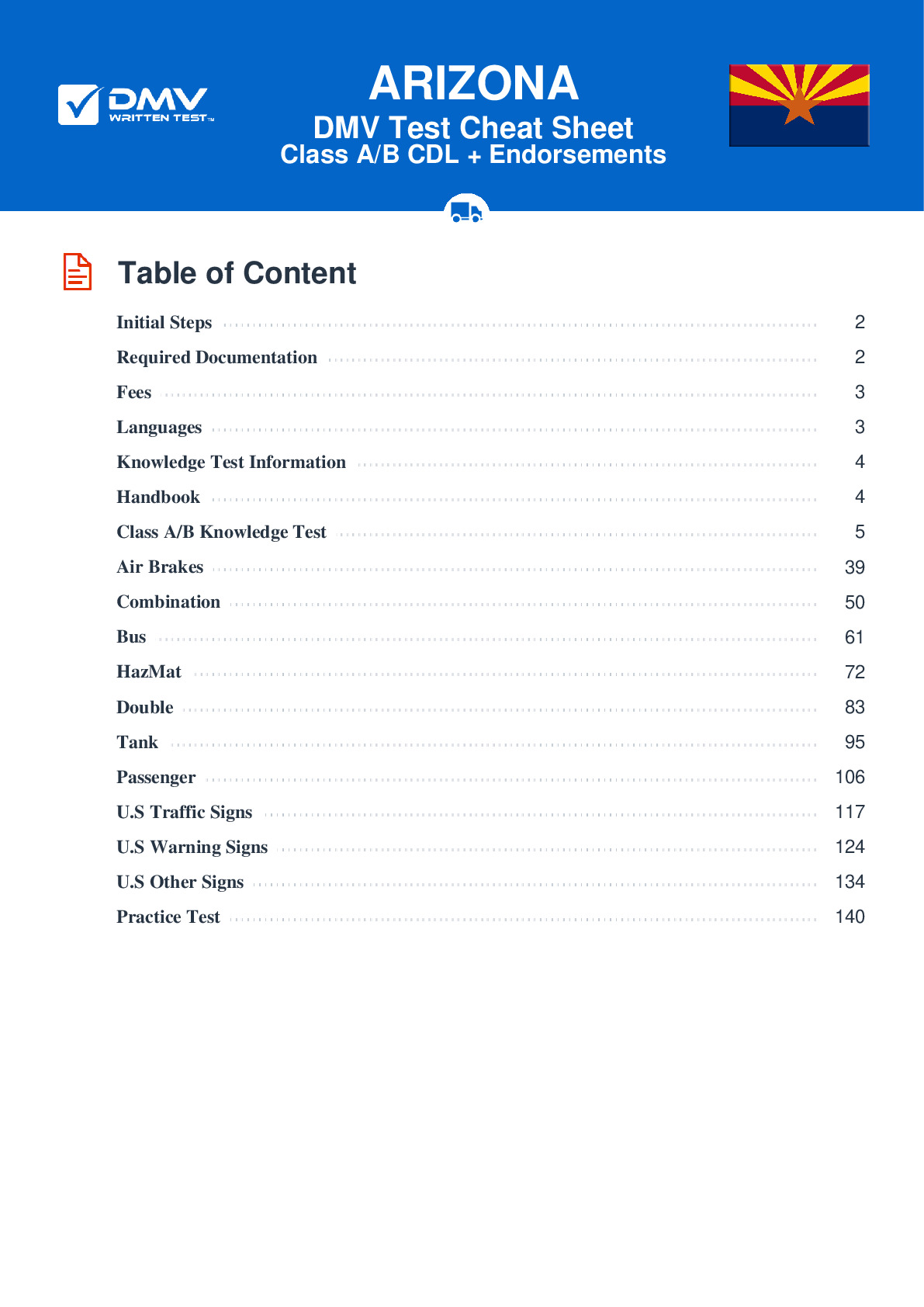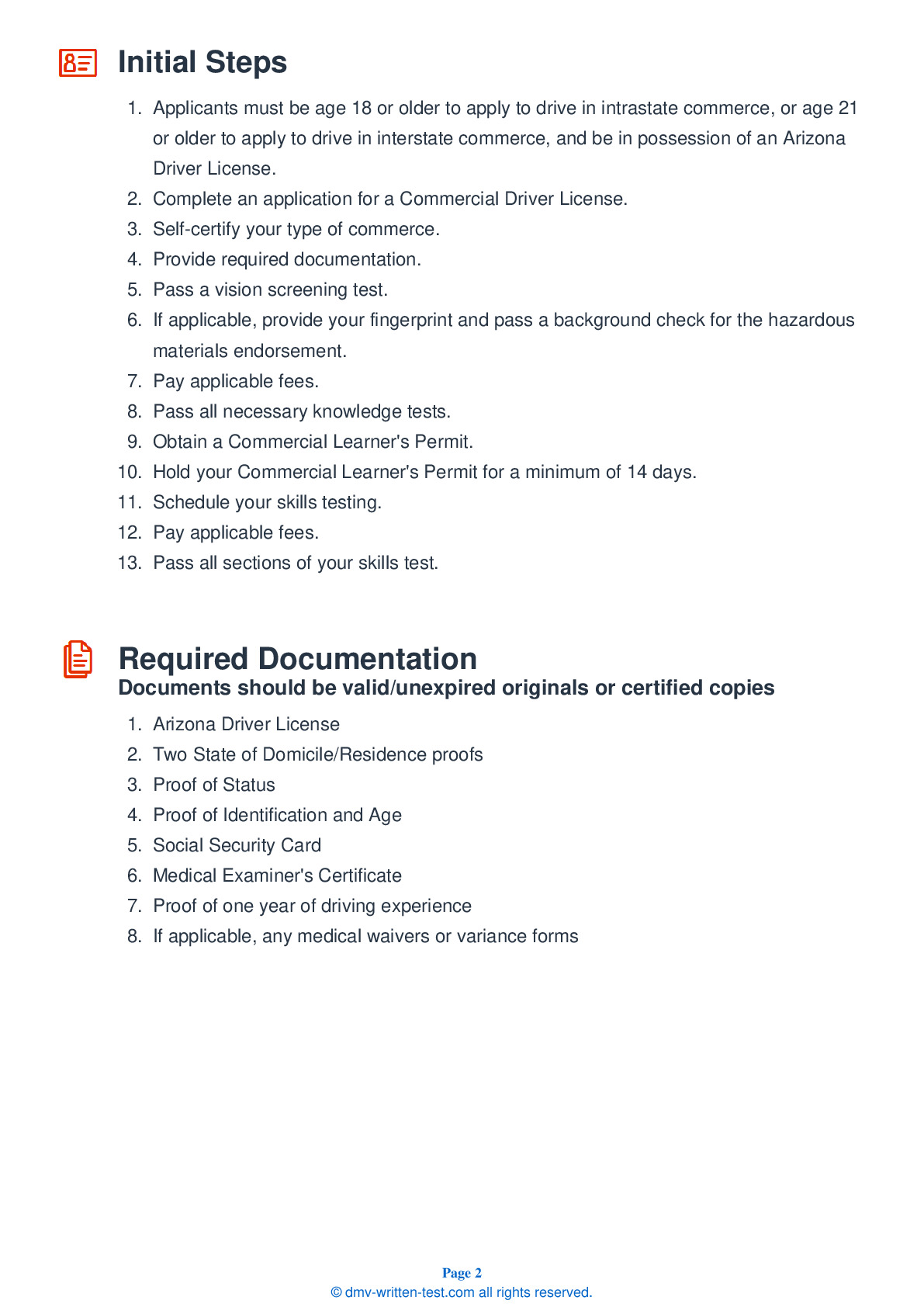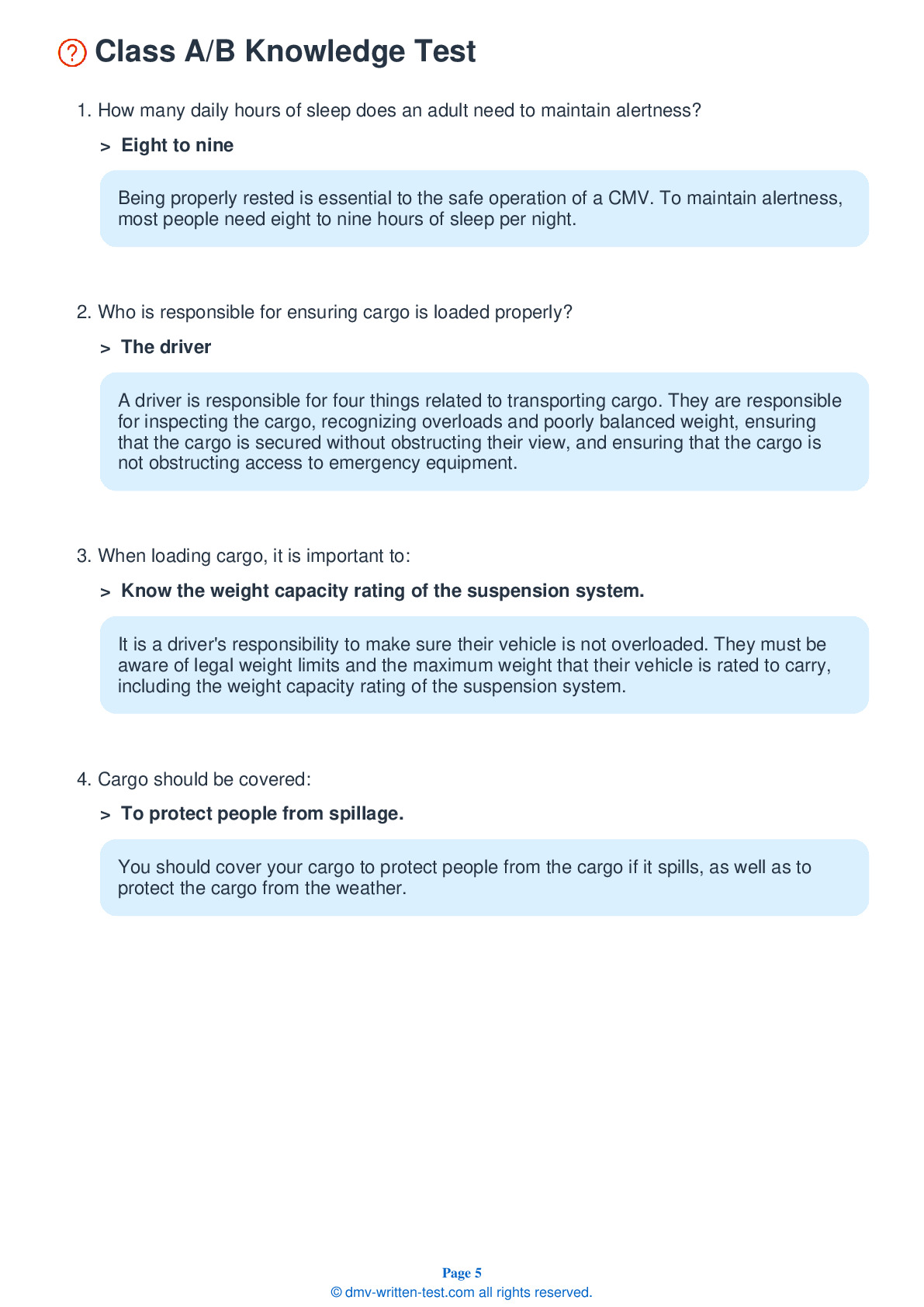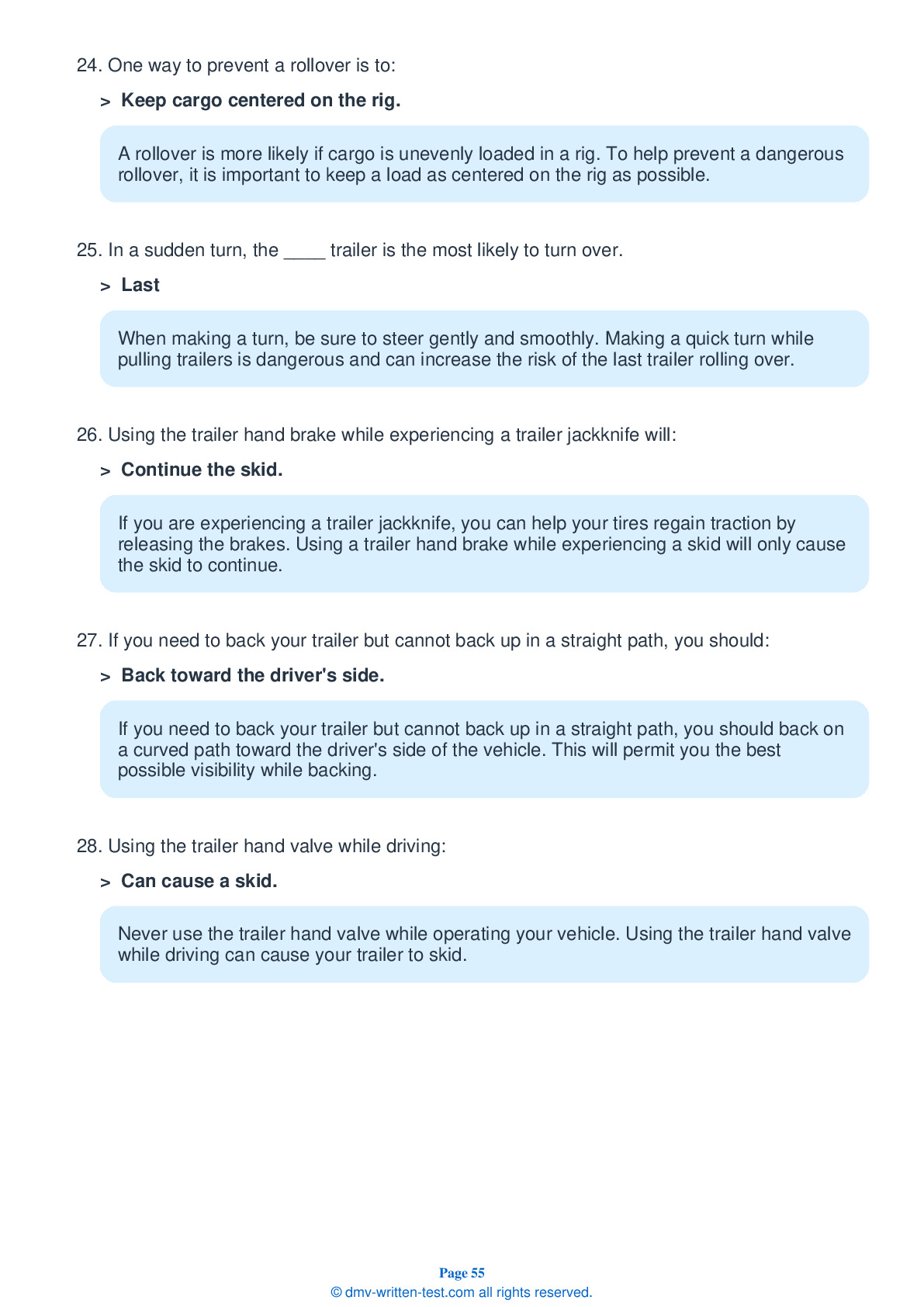Combination
All applicants who are applying for a Class A CDL should be prepared to take the Combination test. This test covers information found in Section 6 of the Arizona Commercial Driver License Manual. Section 6 provides the information needed to safely operate tractor-trailers, doubles, triples, and straight trucks with trailers. The test is made up of 20 multiple-choice questions, and applicants will need to correctly answer a minimum of 16 questions to pass. The Combination test is not a replacement for the Double/Triple endorsement test.
Number of Question
Passing Score
8. Rollovers happen when:
Explanation
Rollovers occur when drivers turn or change lanes too quickly.
9. If you cannot reverse your trailer in a straight path, you should:
Explanation
If you need to back your trailer but cannot back up in a straight path, you should back on a curved path toward the driver's side of the vehicle. This will allow you the best possible visibility while backing.
10. Fully-loaded rigs:
Explanation
Fully-loaded rigs are more vulnerable to rolling over than empty rigs because the weight of the cargo gives the vehicles higher centers of gravity.
11. After completing a pre-trip inspection, you should ensure that the:
Explanation
Before a trip, you should ensure that air reaches all air brakes on all trailers by opening up the rear emergency line and service line shut-off valves and listening for escaping air. Close both shut-off valves before beginning to drive.
12. Trailers built before ____ are not required to have spring brakes.
Explanation
Trailers built before 1975 are not required to have spring brakes. When parking a trailer without spring brakes, be sure to use wheel chocks to prevent the trailer from rolling.
13. When a vehicle goes around a corner, the rear wheels:
Explanation
When any vehicle goes around a corner, the rear wheels follow a different path than the front wheels. This is called off-tracking. The degree of off-tracking will be greater on long vehicles than on short vehicles.
14. In a vehicle equipped with an automatic tractor protection valve, the valve will pop out when air pressure drops to a level between:
Explanation




